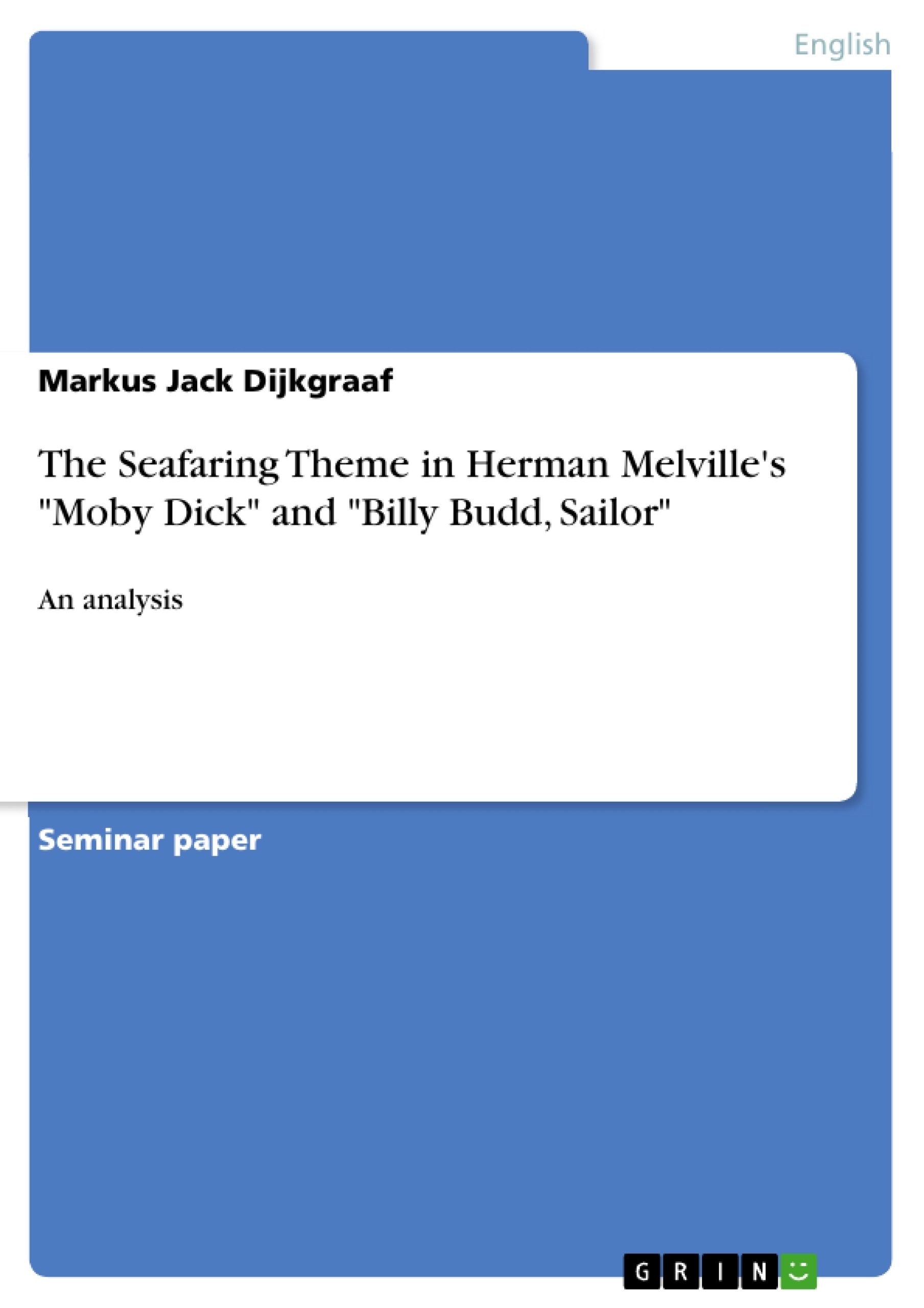Herman Melville's work is characterized by a dominant overarching theme in most cases. One of the strongest motives is that of seamanship. Be it in "Moby Dick", "Billy
Budd, Sailor" or "Benito Cerino". But how great is the impact of those themes on the overall plot or story and, in conjunction, would they play out the same in a land-based setting?
To explore the psychological effects of isolation and confinement on the characters, this essay will mostly rely on studies by Jack Stuster. His work mainly deals with
extreme isolation in arctic or space missions, but the same circumstances apply to life aboard a seagoing vessel, though to a lesser degree. In addition, the author draws on three
years of personal experience working in a maritime setting, one year of which was spent on a civilian ship and two years of military service aboard navy vessels.
The first chapter will define the distinctive features of Melville's chosen setting and seperate it from a dry land theme. In the second chapter, the essay will apply those features to
the novel "Moby Dick" and the short story "Billy Budd, Sailor" in order to analyze their impact on the plot development.
Inhaltsverzeichnis (Table of Contents)
- Introduction
- I. Peculiarities of naval settings
- 1. Leadership and personnel selection criteria
- 2. Group interaction
- 3. Outside communications
- II. The impact of setting on Melville's plot development
- 1. Leadership and personnel selection
- 2. Group interaction
- 3. Outside communications
- III. Conclusion
Zielsetzung und Themenschwerpunkte (Objectives and Key Themes)
This analysis delves into the unique characteristics of naval settings and their impact on the plots of Herman Melville's Moby Dick and Billy Budd, Sailor. It aims to explore how the isolation and confinement of a seafaring environment influence the characters' actions and behaviors, drawing on research by Jack Stuster on extreme isolation and personal maritime experience.
- The distinctive features of naval settings compared to land-based environments.
- The influence of leadership styles and personnel selection criteria on the characters' actions.
- The impact of group interaction and dynamics on the plot development.
- The role of outside communications and its effects on morale and mental well-being.
- The application of these themes in analyzing the plots of Moby Dick and Billy Budd, Sailor.
Zusammenfassung der Kapitel (Chapter Summaries)
The first chapter introduces the unique features of naval settings, highlighting the specific conditions and behavioral patterns that differentiate them from land-based environments. Drawing on Stuster's research on isolation and confinement, it focuses on the critical factors of leadership, personnel selection, group interaction, and outside communications, which shape the characters' experiences and decisions.
The second chapter applies these factors to analyze the plots of Moby Dick and Billy Budd, Sailor. It explores how the naval setting influences the central conflicts, character interactions, and overall plot development in each story.
Schlüsselwörter (Keywords)
The central keywords of this analysis include naval settings, isolation, confinement, leadership, personnel selection, group interaction, outside communications, Moby Dick, Billy Budd, Sailor, Herman Melville, Jack Stuster, and extreme isolation.
Frequently Asked Questions
How does the seafaring setting influence the plot in Moby Dick?
The extreme isolation and confinement of a ship at sea amplify the psychological tension and allow the character of Ahab to exercise absolute leadership without outside interference.
What are the psychological effects of isolation on a seagoing vessel?
Based on Jack Stuster's research, isolation can lead to behavioral changes, increased group friction, and a heightened impact of leadership styles on the mental well-being of the crew.
What distinguishes a naval setting from a land-based setting in literature?
Key differences include the lack of outside communication, the impossibility of escape, and the specific personnel selection criteria required for long-term confinement.
How is group interaction depicted in Billy Budd, Sailor?
The naval environment creates a "total institution" where social dynamics are strictly regulated, making the conflict between Billy Budd and Claggart inevitable and fatal.
Does seafaring serve as a metaphor in Melville's work?
Yes, the ship often represents a microcosm of society, where universal human conflicts are played out under the magnifying glass of isolation and constant danger.
- Arbeit zitieren
- Markus Jack Dijkgraaf (Autor:in), 2012, The Seafaring Theme in Herman Melville's "Moby Dick" and "Billy Budd, Sailor", München, GRIN Verlag, https://www.grin.com/document/307390



